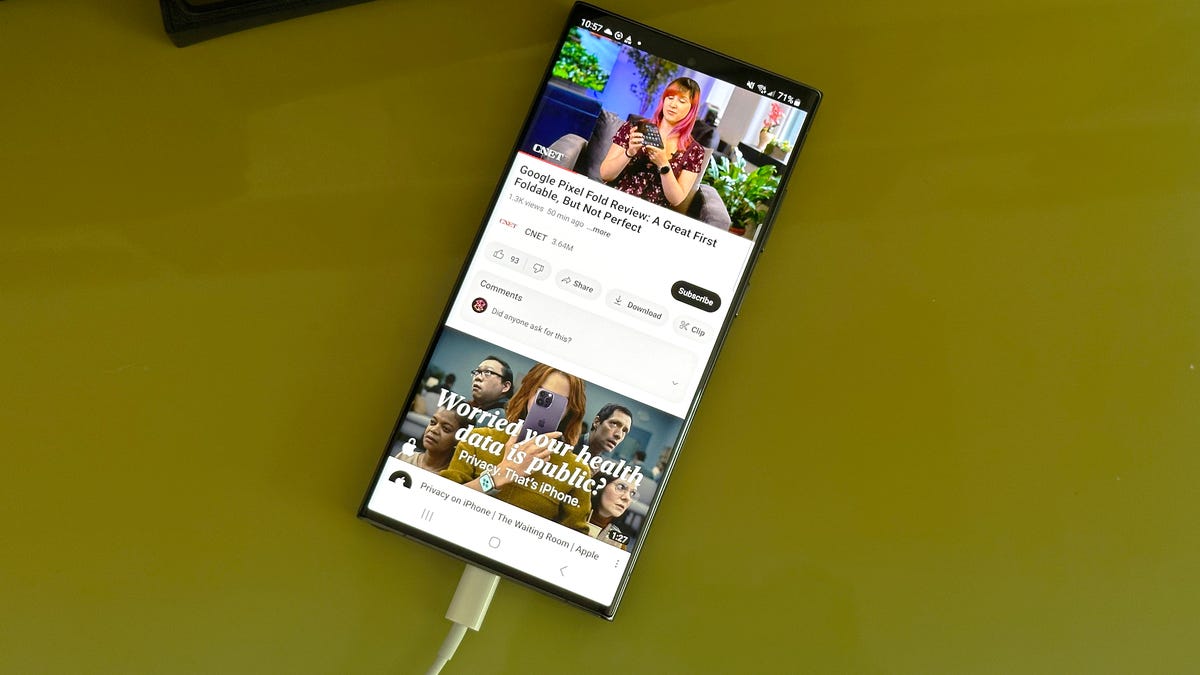Why Your Phone Gets Hot While Charging and How to Stop It
Remember, a cool phone is a happy phone. Unplug, give it air, and let it chill whenever possible.

You don't want to overuse your phone while it's charging.
We've all been there: You plug your phone in, expecting a seamless recharge, but soon it's too hot to handle. Some warmth during and after phone charging is normal, but a phone that's too hot to touch could signal a problem -- especially if it happens frequently.
The culprit could be anything from a fast charger, an overcharged phone or trapped heat in a poorly ventilated room. Whatever the reason behind a too-warm-for comfort phone, it's important to address heat-related issues ASAP in order to prolong battery performance and health.
Read more: Best Phone to Buy for 2024
Remember, a phone that gets excessively hot can cause glitches, damage internal components and shorten the battery lifespan. Here are some of the most common reasons your phone gets hot while charging and how to solve each cause. The solutions are easier than you might think.
Multitasking meltdown
When you're multitasking -- whether you're binge-watching your favorite show, playing games or running graphic-intensive apps -- your phone requires significant processing power from its CPU and GPU. Add charging into the mix, and you risk pushing your device to its limits and possible thermal overload.
When your phone is plugged in, it draws power from the charger to replenish its battery. Charging itself generates heat, especially if you're using a fast charger. So, you have two heat sources: those demanding CPU and GPU tasks, along with the charging process itself.
Solution: Prioritize charging your phone rather than multitasking. When your battery is low, focus on charging first. Once it's sufficiently charged, then you can multitask away.
Dodgy chargers and cables
If you're using third-party chargers or cables to replenish your battery, you could risk damage to your phone. Chargers that don't support the original equipment manufacturer's charging standards often lack precision in power delivery. Dodgy cables and chargers sold cheaply on large shopping sites might have faulty components which could disrupt the flow of power. The consequence? Overheating.
Solution: Get rid of them. Legit gear is the way to go.
Ventilation woes
Your phone's internals need air. If your device lacks sufficient space or ventilation while charging, the heat generated by internal components can't escape past its body, resulting in trapped heat.
Solution: Make sure your phone has enough room for air circulation around it. Apple itself recommends taking the iPhone out of its case when charging it with "certain styles of cases may generate excess heat, which can affect battery capacity." If that's not possible, you should at least avoid stacking anything on top of a charging phone. Give it some space -- literally.
The setting is on by default, but it never hurts to look and confirm.
Overcharging myth
Most modern devices are equipped with protective mechanisms to prevent overcharging. When your iPhone's internal lithium-ion battery reaches 100% capacity, for instance, charging automatically stops. Starting with the release of iOS 13 in 2019, Apple introduced a tool called Optimized Battery Charging on iPhones, which limits charging to around 80% when connected to a charger for an extended period (such as overnight). Many Android phones offer something similar and even have more robust controls for things like pass-through charging and the ability to limit fast charging.
Solution: Don't worry about charging your phone overnight, too much.
All that said, if your phone is consistently overheating, it's a sign that something might be amiss. Consider reaching out to the manufacturer's support department. Apple users can schedule a Genius Bar appointment, and Samsung users can find relevant details on their website.

